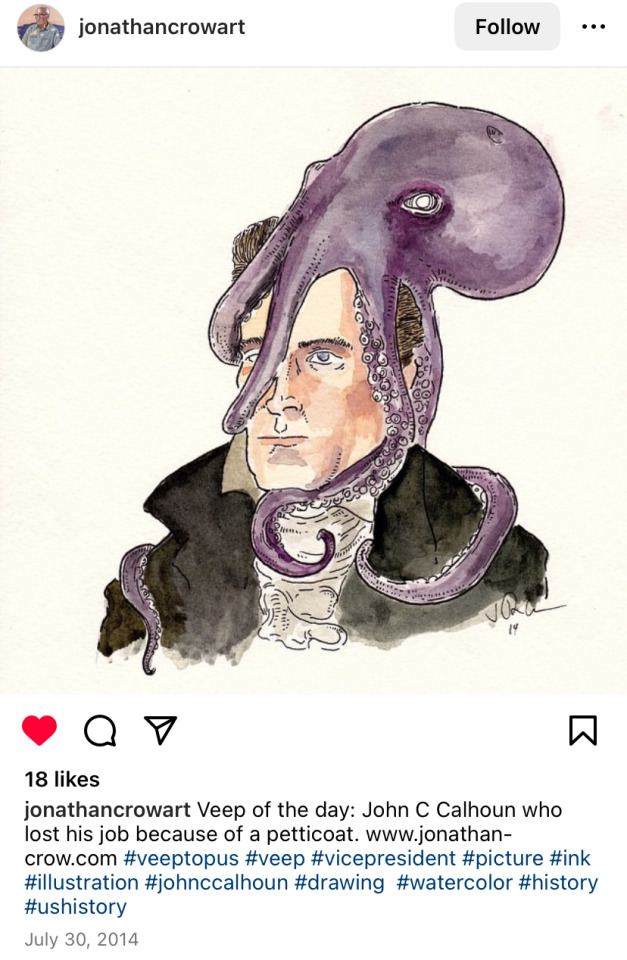#john c calhoun
Text

help
#i only know so much about these idiots :P#jackson is not a twink... but a twig#sorry normal people#CLAY STICKS OUT GOD YOU BLOND MF#anyhways#nicholas biddle#john c calhoun#henry clay#daniel webster#john quincy adams#andrew jackson#antebellum
34 notes
·
View notes
Text

There are times when I still wonder about you
You are someone I have loved, but never known
#WAHOOOO last one for the midweek weekend i prommy#just feeling da boyz#clayhoun#henry clay#john c calhoun#me n doodles clayhoun party playlist… peak#this song is houn but parts of it very hal
41 notes
·
View notes
Text



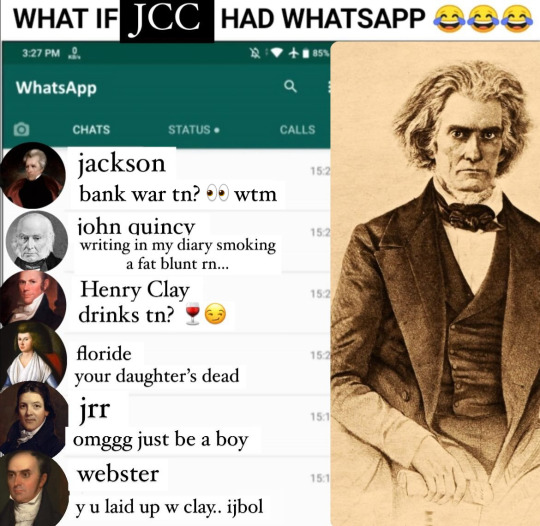
when i cant think of a pose i just add a block of song lyrics
#John c Calhoun#Henry Clay#they need to find the cure to autism rn#antebellum#my art#Idek how to draw calhoun like wtf he do his hair like that…#clayhoun#… sorry..
12 notes
·
View notes
Text
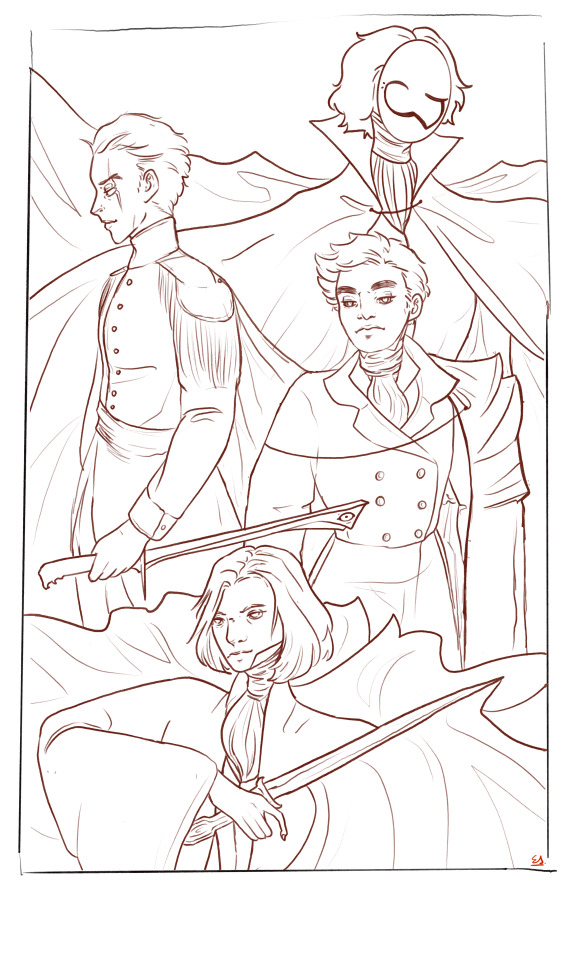



The Four Calamities: TGCF inspired AU for our favorite Antebellum Era bastards.
#john c calhoun#daniel webster#henry clay#fanart#my art#tgcfu au#andrew jackson#hua cheng!andrew jackson is literally driving me bonkers btw#the match the way it just works... two orphans with eye trauma rising to king-ness and power.#and with a xielian biddle...#man can u imagine a universe where aj is nicholas biddle's most devoted follower.#most devoted and most blasphemous-- he hates his god and he still serves him and he feels anger and feels pity and he feels disappointment#there is a cave somewhere with a thousand statues of god!biddle carved by a vengeful andrew jackson ghost as he simmered for a hundred year#inside a volcano waiting for it to erupt#why did he carve them?#idk but u know for a fact that daniel webster was not having the time of his life when he had to go through that mountain after jackson lef#and came face to face with countless statues of his immortal once-upon-a-time sugar daddy
17 notes
·
View notes
Text
Twink death is a terrifying thing


59 notes
·
View notes
Text
Request Art!
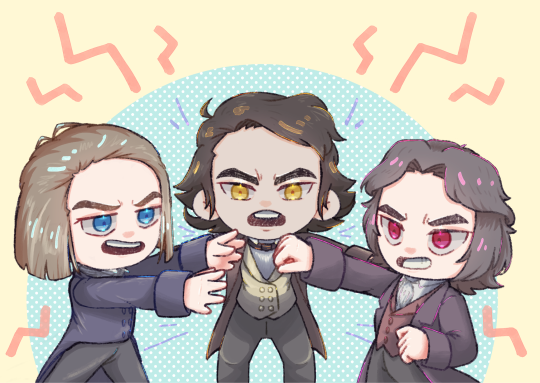
The great triumvirate fighting!
From the right: John C. Calhoun, Daniel Webster, Henry Clay
Sorry for the long wait!💦
Finally finished the art for the great triumvirate as requested!!
Had real fun thinking each of their character design!!
Thank you for making a request for me!☺️
@antebellumbitch
26 notes
·
View notes
Text
𝕣𝕖𝕤𝕖𝕒𝕣𝕔𝕙 𝕡𝕣𝕠𝕛𝕖𝕔𝕥: 𝕓𝕦𝕣𝕖𝕒𝕦 𝕠𝕗 𝕚𝕟𝕕𝕚𝕒𝕟 𝕒𝕗𝕗𝕒𝕚𝕣𝕤
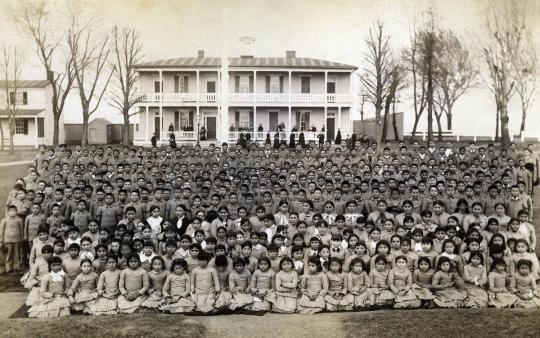
When the factory fur trade of North America was abolished in 1822, the US Government was left searching for a way to maintain control in Indian territories. John C. Calhoun, then Secretary of War, created the “Bureau of Indian Affairs (BIA)” on March 11, 1824. He did so without authorization from Congress, which is against the general practice although not expressly forbidden by the Constitution. John Calhoun would go on to become the Vice President of the United States the following year.
1825 was an interesting year in US history, representing the end of the Era of Good Feelings that followed the War of 1812. The presidential election would split the previous first party system into the Democrat and Republican system we now know today. The country was taking its first steps to limit the expansion of slavery into its newly aquired territories. As Jacksonian Democracy extended the privilege of voting to most white men aged 21 or older, removing the previous requirement to own land, racist and colonial mentalities spread in the form of “manifest destiny”. The US needed to remove Indian peoples from their homelands and they needed a way to do it.
The Bureau of Indian Affairs would go on to forcibly remove native peoples from their nations under the direction of Senator and then Secretary of State, John C. Calhoun. In the late 1800’s, after succeeding in removing many tribal nations from their homelands, the Bureau of Indian Affairs created the Residential Schooling system to assimilate Indian children into American culture. Missionaries had already established the practice, but the Bureau of Indian affairs built their schools specifically off-reservation and incorporated “students” from a variety of different tribes to aid in their goal of assimilation. Their model was the infamous Carlisle Indian Industrial School in Pennsylvania.
The 1960’s and 1970’s saw a rise in activism for and among American Indians. The Bureau faced a number of displays of public opposition by Indian people and those who supported them, like the 1972 Occupation of BIA Headquarters. Today, the Bureau of Indian Affairs is responsible for quite a few different things, all concerning the affairs of American Indian people on Tribal lands.
The Bureau as a whole is responsible for the federal recognition of tribes, most recently the Little Shell Tribe of Montana. The Office of Field Operations is responsible for regional operations, working with tribal governments on the management of natural resources, agriculture, fish and wildlife, and parks. The Office of Justice Services operates several programs and also provides funding for law enforcement, tribal courts, and detention facilities on federal lands. Their jurisdiction is surprisingly expansive, holding authority over all crimes committed on reservations and all federal crimes, as well as all crimes committed within “dependent Indian communities” or on trust lands. It is also the responsibility of the OJS to enforce tribal criminal codes and assist tribes in maintaining their courts and justice systems. They also operate the Indian Police Academy, where agents are trained to work specifically in Indian Country. The Office of Trust Services is responsible for overseeing land and resources that are recognized as tribal but owned in trust by the US federal government. Finally, the Office of Indian Services comprises a wide range of different programs, including social services and child welfare, transportation infrastructure, awarding federal funds to tribes, and providing resources to tribal governments. It is generally in their mission statement and enumerated responsibilities to uphold tribal sovereignty under the Indian Self Determination and Education Assistance Act.
Sources: x.x.x.
#history#anthropology#native american studies#bureau of indian affairs#natives in academia#native history#indigenous#studyblr#natives on tumblr#indigenous people#native americans#land back#american history#john c calhoun
76 notes
·
View notes
Note
Did James and A Junior not get along? What's their whole deal?
There seems to have been strain between the two, heavily on James's side. There aren't many signs of the two starting this sort of rivalry in childhood, but when you consider the way the children were usually grouped into two or three kids when traveling or attending school, and with James and Alexander not being too far from each other in age; it is likely constantly being shoved together may have started some bitter feelings—In 1795 when the family moved back to New York, the boys enrolled in Bishop Moore's school for boys on Staten Island, [x] and later Alexander was then likely transferred to Tod's school in New Utrecht with James, during 1800. [x]
But the only moment one can actually definitely pinpoint when their clashing started was - according to James - when their grandfather, Philip Schuyler, died in the November of 1804. And James claimed to have had to help his mother with their finances by himself since Alexander was “was away from home attending to his commercial affairs”;
It was my good fortune to have almost the entire care and management of [Elizabeth Hamilton's] affairs. The elder son, Alexander, was away from home attending to his commercial affairs. I remained at the Grange with her as long as she remained there, attending to the cultivation and household, and after her father’s death I became useful in collecting her rents and selling such parts of her property as her needs required.
Source — Reminiscences of James A. Hamilton
James was a bit young at the time, only being 16 years old and hadn't even graduated yet. General Schuyler's death was also salt in the wound for the family that was still grieving the death of Hamilton, so it must have been a large amount of responsibility and heartache for James to take up at such a young age. James doesn't describe much as to where Alex was, or what he was doing; but he was likely taking on his lessons and jobs, as he had graduated near Hamilton's death, and letters to and from Eliza showcase his eagerness to leave the nest, and even small implications of misbehavior (Check out @theelizapapers for more information). Eliza evidently being saddened by this as she was finding it hard to let her children go so soon after Hamilton's death. Which may have also played a part in James's resentment towards Alexander for repeatedly only caring about himself when Eliza was in a depressed state of grieving.
James claims Alexander was busy with commerical affairs, which might have been his work in a commercial house—as just a few months prior in August, King mentions to Clarkson; “Mrs. Hamilton having written to Mr. Cabot to endeavour to procure for Alexander a situation in a respectable commercial house, Mr. Higginson has readily consented to take him; and until a suitable family can be found to take Alexander as a boarder, Mr. Higginson will receive him into his own family.” [x]
In fact, James seems to bash Alexander a little more in his memoirs with a petty undertone as these certain details come up unnecessarily;
I was moved to go on this expedition, first, because I felt it was my duty to show a readiness to risk something in support of law and order; second, because I wished to give this public demonstration that I did not concur in the views entertained on this subject by my brother Alexander, who was one of the Vice-Presidents of the Park meeting, and lastly, because I desired to be in a fight to know how men do and how I myself would behave on such an occasion.
Source — Reminiscences of James A. Hamilton
The brothers seemed to have contrasting political opinions that likely fueled their resentment, James was a loyal Jacksonian with a close partnership with Andrew Jackson, and Alexander was a Calhounite who supported and corresponded with John C. Calhoun (Way to disappoint your father, guys). When James was assisting Jackson and Van Buren with work on a speech that preached to get rid of the Bank of the United States, it appears Alexander sent a letter to Biddle warning him that the permanency of the Bank was in danger, who unfortunately, didn't believe him at first;
However, a week later, Nicholas Biddle was warned by Alexander Hamilton, jr., 27 November 1829, that the President would speak against the Bank in his message: “I have long had an anxious solicitude for the permanency of the Bank of the United States,” he wrote, “and it is consequently a source of deep regret that I understood the renewal of its charter is to be unfavourably noticed in the President's message.” Mr Biddle refused to believe the warning. He replied the next day: “The rumor to which you allude,” he said, “I have not heard from any other quarter, and I believe it is entirely without foundation. My reason for thinking so is that during a recent visit to Washington from which I returned on Thursday last, I had much conversation of a very full and frank character with the President about the Bank, in all which he never intimated any such purpose. On the contrary he spoke in terms the most kind and gratifying towards the institution—expressed his thanks for the services it had rendered the Government since his connection with it, and I look to the message with expectations of the most satisfactory kind.”
[...]
Alexander Hamilton, jr., was a supporter of John C. Calhoun—his brother James A. Hamilton, a supporter of Andrew Jackson. But it is a reasonable conjecture that the first brother got from the second the news of which he warned Nicholas Biddle.
[...]
James A. Hamilton says that he was called on to help President Jackson with this message and that in the draft already written the Bank “was attacked at great length in a loose, newspaper, slashing style.” He says he advised that the subject be omitted, but the President declared himself to be “pledged against the Bank.” He says the President told him a little later that in attacking the Bank he disliked to act contrary to the opinion of a majority of his Cabinet but could not shirk his duty. At the same time, Hamilton says he was asked to work out the details of Jackson's “proposed National Bank,” which was to be “attached” to the Treasury and to have the “Customhouse a branch.”
Source — Banks and Politics in America: From the Revolution to the Civil War, by Bray Hammond · 1991
Additionally, according to The Hamiltonian Tradition in the United States, 1804-1912, when James was writing in the newspaper advocating for the use of black regiments against the Confederacy, Alexander offered to volunteer and lead one. Although he was like 77 years old, so of course it didn't actually happen. [x]
In Alexander's defense, he was not as deadbeat as James usually claims him to be. In 1833, Alexander used the funds from the sale of The Grange and purchased a townhouse, and between 1833-1842, he and his wife, Eliza P. Knox, lived with his mother, his sister, Eliza Hamilton Holly, and her husband, Sidney Augustus Holly, in New York City, at 4 St. Mark's Place.
But there did seem to be reappearing family disputes between the two, as in the November of 1859, Holly had died a month earlier, and the surviving brothers (Alex, James, John, Phil II) and their respective families were trying to reach a satisfactory conclusion on how to deal with her will. James was angered by Alexander's and his wife's demands, and Phil seemed to have taken the place as a peace maker;
I hope you have taken measures to prove the will without delay the parton [illegible] by going an address [illegible] will render delay unnecessary. I hope you will sell all the furniture at Auction & Press after distributing the articles bequeathed then, the work is done except so far as refers to your payment to Alex & wife during their Les Interest on $7000 as to that if he should talk to you about security altho he has no right to it tell him I will be security for you or that you will purchase an annuity to him & his wife of $420.
Here is a man who has the audacity to ask his brother who is Executor to give security for the luckful perkmen of [illegible] when he was administrator squandered the Estate leaving a larger debt unpaid and his to be prosecuted. Such impudence be excused. How all much forgive but not yet forget. Let me know if I can be of use to you (...).
Source — James Alexander Hamilton to Philip Hamilton II, [November 1, 1859]
It seems grudges were still being held. To make matters worse, Holly seems to have been the one to hold many of her father's papers after her mother passed, and during this family arrangement Alexander Jr had taken off with some of his father's documents without any explanation. As Phil expressed his annoyance with this when in 1859, Phil created a calendar of letters written by his father that Holly had been holding. Each description is of a letter, but one to Alexander Hamilton from Sarah Alexander, Lady Stirling, dated the 26th of June, 1801, Phil remarks that it had been; “taken by my brother Alexr Hamilton from the house of my sister E H Holly immediately after her death without any colour of right or authority.” [x]
I've made plenty of analysis and theory posts about why Alexander seems to have been so negligent and arrogant towards his siblings, but I'll summarize them by saying that Alexander was likely insecure and felt he wasn't suited for the role of head of the family. Even when it was most traditional for the eldest son to take up the spot, Alexander was nowhere near prepared to take on such a heavy responsibility after his eldest brother died, his sister became mentally impaired, and his father's unfortunate death too. Not to mention, Alexander seems to have felt as though he constantly needed to prove himself worthy of being Hamilton's son, and likely prioritized his career and name over his family's situation due to such. And there is the whole deal about Eliza claiming James was Hamilton's favorite son (While living with Alex Jr too), [x] which would have been considerable if true as Hamilton seemed to have taken preference for James over Alex after Philip's death. An interesting note if Hamilton was truly just valuing the eldest to be prepared to take on the family mantle, but instead found James more promising than Alexander.
Anyway, hope this helps!
#amrev#american history#james alexander hamilton#alexander hamilton jr#philip hamilton ii#eliza hamilton holly#eliza hamilton#alexander hamilton#historical alexander hamilton#history#hamilton family#hamilchildren#hamilton children#hamilton kids#hamilkids#queries#sincerely anonymous#cicero's history lessons#andrew jackson#john c calhoun#jackson era#martin van buren
23 notes
·
View notes
Text
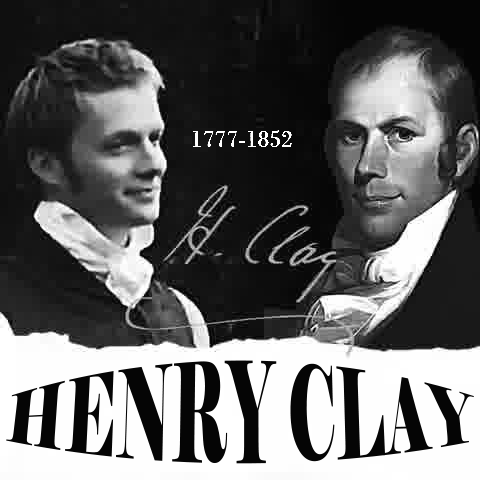
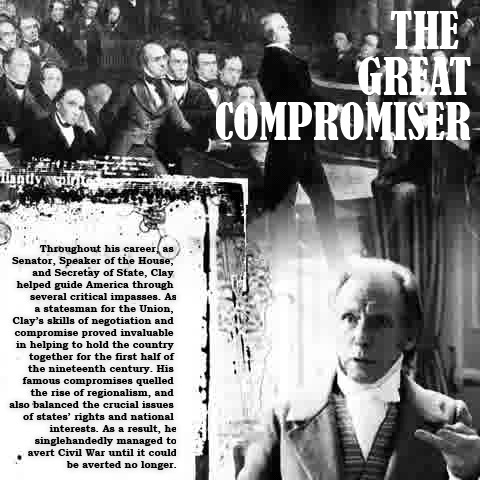
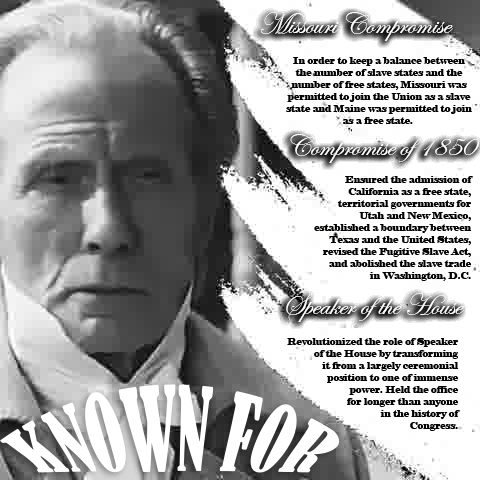

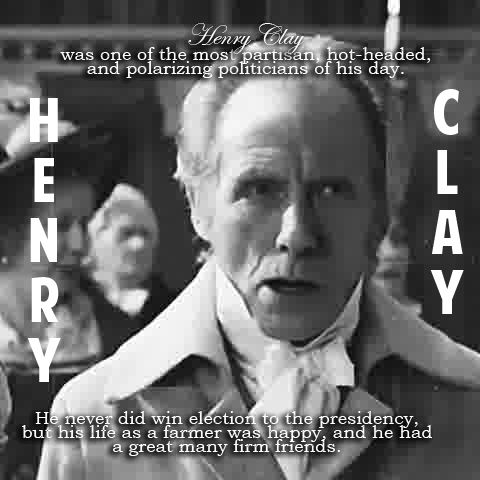



GET TO KNOW ME : Favorite Historical Figures [1/5]
Rupert Penry-Jones and Bill Nighy Fancasted As
HENRY CLAY (1777-1852), a prominent politician in American history known for his endeavors to promote COMPROMISE as a solution for national crises.
#cw slavery#gifshistorical#pscentral#perioddramasource#historyblr#history edit#antebellum era#historyedit#henry clay#john c calhoun#daniel webster#american civil war#rupert penry jones#bill nighy#𝐓𝐑𝐀𝐂𝐊𝐈𝐍𝐆 𝐓𝐀𝐆𝐒 ⠀ ⠀ ➜#userxoames#uservivaldi#tusercat#tuserheidi#tuserecho#usermahroash#usershale#calliestag#*knowcallie#— 𝐄𝐋𝐀𝐁𝐎𝐑𝐀𝐓𝐄 𝐆𝐈𝐅𝐒𝐄𝐓𝐒#— 𝑨𝑴𝑬𝑹𝑰𝑪𝑨𝑵 𝑯𝑰𝑺𝑻𝑶𝑹𝒀
16 notes
·
View notes
Text

OH OKAY DAMB OKAY even more reasons to call it Bde Maka Ska...may his name be blotted out
#racist bullshit#john c calhoun#i didn't actually know anything about him other than that older white people love calling it 'lake calhoun'
3 notes
·
View notes
Photo

Conspiracy Theory Time? Conspiracy Theory Time.
#aaron burr#alexander hamilton#george washington#martin van buren#henry clay#jefferson davis#john c calhoun#abraham lincoln
36 notes
·
View notes
Text


Frankenstein War Hawk Lover
#clayhoun#thanks to doodle. sorry i hit you with that all at once at 10 pm man#idk renfaire mead got me acting unwise#john c calhoun#shhhh. its FINE!#clay spending his life chasing after someone who doesnt exist anymore and probably never did. L
19 notes
·
View notes
Text
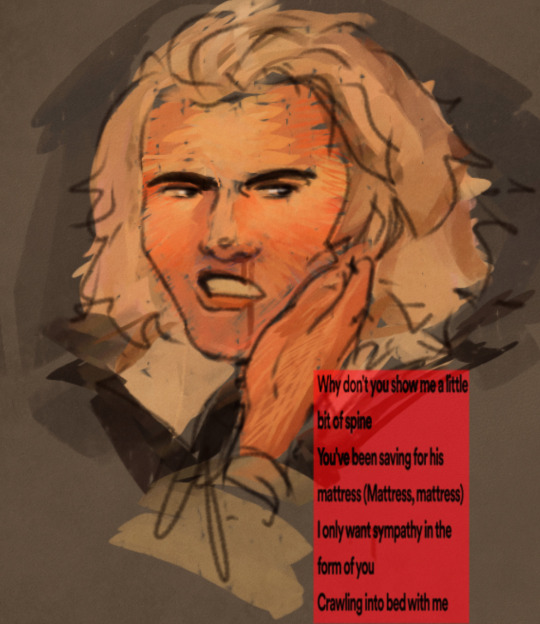
post nullification jackhoun. i tink i hauve covid. . . 🤤
#the hand is jacksons#‘ummm actually 🤓☝️’ girl this is tumblr idgaf abt historical accuracy im playing with my worm rn#my art#john c calhoun#this song lyric for them… i feel sick.
4 notes
·
View notes

